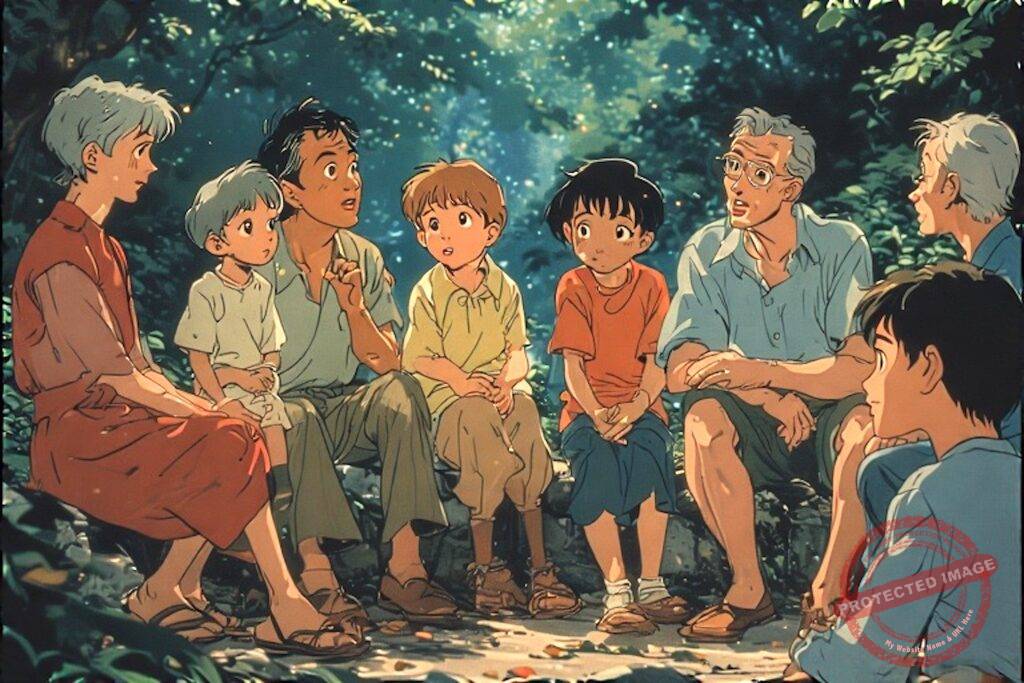
A Legacy in Waiting
For many Jews today, the Messianic hope still lingers in the background—woven into liturgies, sung in songs, whispered in prayers, and held as a deep yearning for a world finally healed. The prophets of the Hebrew Scriptures spoke of a time when swords would be beaten into plowshares, when justice would roll down like waters, and when God would give His people new hearts. But for modern Judaism, especially among the secular majority, this vision often feels more poetic than prophetic—something admired rather than expected.
Yet what if that expectation wasn’t lost? What if the longing embedded in the Jewish soul is pointing toward a better way forward—not by turning away from tradition, but by rediscovering its fulfillment?
The Challenge of Modern Jewish Identity
The reality is sobering: the vast majority of Jews today are not religious in the traditional sense. Many embrace their Jewishness as cultural identity or familial legacy, but not as covenantal faith. For some, belief in the God of Abraham, Isaac, and Jacob seems distant or irrelevant. For others, especially in the shadow of historic suffering like the Holocaust, that belief has been quietly—or angrily—surrendered. The God of the Bible, once central to Jewish life, is often replaced with a more abstract, Spinozan sense of the divine: a God of metaphor, ethics, or nature rather than personhood.
This shift raises an important question: How can the Jewish people move forward toward the promised Messianic Age if they no longer believe in the God who made that promise? How can a people described throughout Scripture as “stiff-necked” and prone to rebellion become the shining example of righteousness and covenantal love that the prophets envisioned? The answer must point toward a better way forward than mere tradition or secular optimism.
Prophets, Promises, and Transformation
The prophets don’t leave us without hope. In Ezekiel 36, for example, God declares that He will one day give His people a new heart and a new spirit. He will remove the heart of stone and replace it with a heart of flesh. In Jeremiah 31, He promises a New Covenant—not like the one broken in the wilderness, but one where His law will be written on the hearts of His people. This transformation is not something Israel can accomplish on its own. It is supernatural, initiated and fulfilled by God Himself.
Here lies the core of a better way forward: it’s not about human effort to attain holiness but divine grace that makes holiness possible. This promise of internal transformation is at the heart of Christian belief in Jesus as the Messiah.
Jesus and the Fulfillment of Hope
For those who have embraced Jesus as the promised Messiah, especially those from a Jewish background, the Old Testament becomes alive in ways previously unimagined. The prophecies are no longer cryptic shadows but radiant signs pointing to a Messiah who not only rules eternally but transforms the very people He leads. It is no longer a question of striving for righteousness, but of receiving it as a gift. This doesn’t nullify Jewish heritage—it completes it. It is as if the ancient song of Israel finds its final verse.
Still, many Jews reject this view. They await a human Messiah, a future political or spiritual leader who will restore Israel and bring peace. But even this expectation leads to a difficult question: How can such a Messiah bring lasting righteousness to a people who—by the Bible’s own testimony—have continually fallen short? If sustained holiness is needed for the Messianic Age, wouldn’t it require a transformation of the human heart? Jesus offers a better way forward, not by political restoration, but by personal renewal.
A Conversation, Not a Confrontation
To those wrestling with these questions—especially Jews who feel culturally tethered to their tradition but spiritually adrift—I offer this reflection not as a confrontation but as a conversation. There is a better way forward that doesn’t abandon Jewish identity but fulfills its deepest promises. A path where the God of Abraham is no longer distant, and the hope of the prophets is no longer postponed. Jesus, the son of David, claims to be that fulfillment—not just of messianic expectation, but of the human heart’s longing to be made whole.
This path does not erase grief or the weight of history. But it offers something more: the peace of being truly known by God, the joy of seeing Scripture come alive, and the hope that even in a world of doubt and despair, the promise of the Messianic Age is not a dream—but a reality already breaking into the present.
About Raleigh Acupuncture
At Raleigh Acupuncture Associates, we are deeply committed to providing the highest quality professional acupuncture while being rooted in strong Judeo-Christian values of love, faith, kindness, and truth. We guide our practice with compassionate care, where each patient is treated with respect and dignity, regardless of their background, faith, or beliefs. We welcome people from all walks of life and strive to create a warm, inclusive environment promoting healing and holistic wellness. Our dedication to delivering exceptional acupuncture is paired with a genuine love for helping others, making our clinic a place where faith and professional medical care come together for the well-being of every patient.
Next Steps
BOOK NOW to schedule an appointment online.
Meet Our Practitioners (Video).
Learn about all the conditions we treat.
Focus Keyphrase: A Better Way Forward
Image generated with https://perchance.org/ai-text-to-image-generator





Leave a Reply